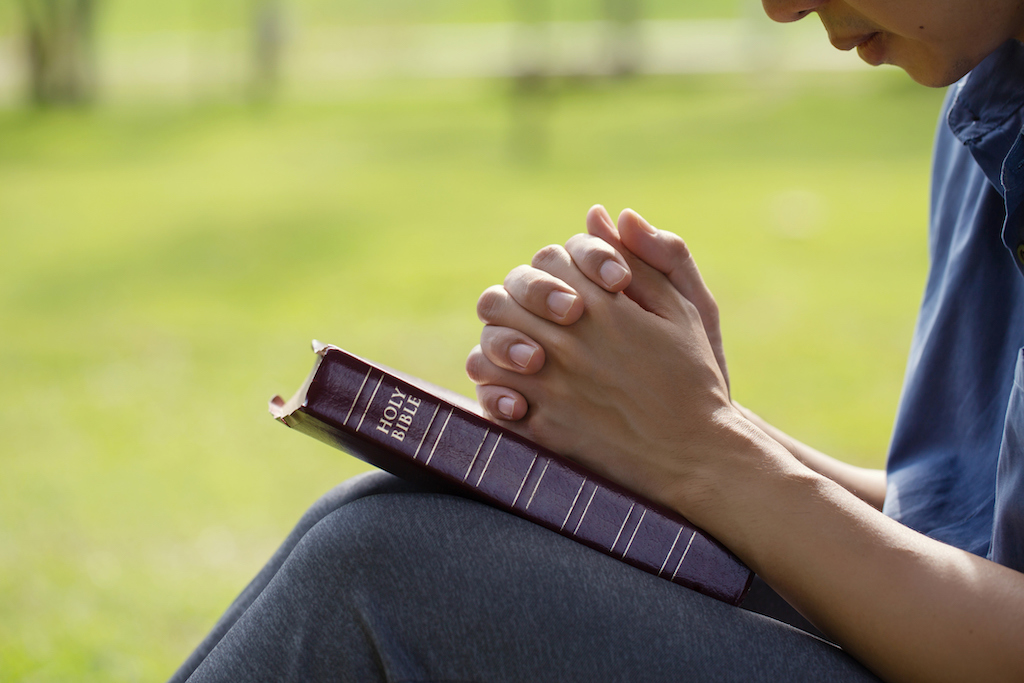Question: If I send a donation to a group that says they’ll remember my intentions at Mass, how does that work? They can’t possibly remember every intention of every donor! (Garden City, NY)
Answer: Depending on the specific circumstances of the donation and the nature of the prayer request, the group in question may indeed remember your particular intention.
If you make a general, unspecified donation to a group like a shrine or a religious community, they may send you a note saying that they’re praying for your intentions. Sometimes this means that your intentions are included in an unspecific (but licit) way when the community prays for “the intentions of our benefactors.”
But in other cases, if you write to a religious community with a specific prayer request –especially a monastic contemplative community, as these communities are specialists in intercessory prayer – you may be prayed for by name.
When you give a small monetary gift to a parish, religious community, shrine, or other pertinent Catholic organization after requesting that Mass be celebrated for a particular intention, this money is called a “stipend.”
As Canon 945, 1 describes this custom: “In accord with the approved practice of the Church, any priest celebrating or concelebrating is permitted to receive an offering to apply the Mass for a specific intention.”
The original idea behind Mass stipends was that a stipend for a priest’s daily Mass would be enough to provide for his material daily needs – although in this respect, Mass stipends certainly have not kept up with inflation!
Our current Code of Canon Law describes Mass stipends as works of charity, insofar as the faithful, in making the offering of a stipend, share in the Church’s “concern to support its ministers and works” (Can. 946).
The set amount for a Mass stipend is determined locally by the bishops of an ecclesiastical province (the region made up of an archdiocese and its surrounding suffragan dioceses).
In the United States, Mass stipends tend to range between $5 – $20, but at the end of the day, a Mass stipend truly is a donation, as canon law states that: “It is recommended earnestly to priests that they celebrate Mass for the intention of the Christian faithful, especially the needy, even if they have not received an offering” (Can. 945, 2).
Canon 947 goes on to warn that “any appearance of tracking or trading is to be excluded entirely from the offering for Masses.”
Yet even while the law is very strict about avoiding any semblance of commercializing Mass intentions, it’s just as strict about ensuring that the faithful’s intentions in this context are respected as a matter of basic justice.
Canon 953 tells us that no priest is “permitted to accept more offerings for Masses” than he can celebrate within a year. If there were a scenario where a given church or other community received more stipends and Mass intentions than they could handle on their own, it is possible to “outsource” the Mass intentions to other priests or religious communities, as long as the person who donated the stipend didn’t specifically indicate otherwise (Can. 954).
Question:What is the rule on food and drink before or during Mass? I thought water was OK during Mass, but someone recently told me no water, and certainly no food, may be consumed within an hour of Mass. And are kids covered by this rule too? (Brandenburg, Kentucky)
Answer: In the Code of Canon Law, Canon 919.1 states: “Whoever is to receive the blessed Eucharist is to abstain for at least one hour before Holy Communion from all food and drink, with the sole exception of water and medicine,” (although Can. 919.2 exempts priests celebrating multiple Masses on the same day from this rule and Can. 919.3 goes on to likewise exempt the elderly and infirm).
So, strictly speaking it would be permissible to drink water right before Mass, or even during Mass if this is necessary. And since the rule refers to fasting before the reception of Holy Communion – rather than before the start of Mass – it’s also acceptable to, for example, have a snack before the start of what you know will be an exceptionally long Mass.
Since the rule applies to those who will actually receive Communion, children old enough to receive Communion are required to fast, while younger children are not.
Jenna Marie Cooper, who holds a licentiate in canon law, is a consecrated virgin and a canonist whose column appears weekly at OSV News. Send your questions to [email protected].

